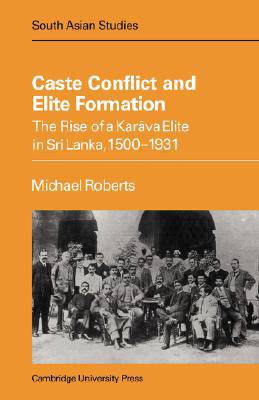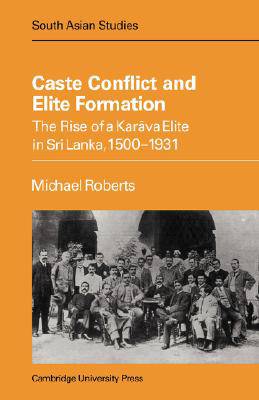
- Afhalen na 1 uur in een winkel met voorraad
- Gratis thuislevering in België vanaf € 30
- Ruim aanbod met 7 miljoen producten
- Afhalen na 1 uur in een winkel met voorraad
- Gratis thuislevering in België vanaf € 30
- Ruim aanbod met 7 miljoen producten
Zoeken
Omschrijving
Caste Conflict and Elite Formation is a study in the social history of Sri Lanka. However, it does not merely document the remarkable successes in business enterprise and in the acquisition of Western-educated professional skills which were achieved by families from the Karava caste during the last two centuries; their advances, and the social and political struggles which accompanied this process, are employed as a window through which a survey of social change in Sri Lanka during the last four hundred years is conducted. The interest of the book extends beyond the many fascinating social incidents, historical trends and channels of elite formation that are described within its pages to a series of controlled comparisons which reveal the factors responsible for the formation of the Karava elite. Thus the book extends the methodological frontiers of the social history of the region. It emphasizes the significance of the patterns of caste discrimination and caste interaction in Sri Lankan politics, and reveals how these patterns were central to the incentives and opportunities which powered the advances of the Karava families.
Specificaties
Betrokkenen
- Auteur(s):
- Uitgeverij:
Inhoud
- Aantal bladzijden:
- 416
- Taal:
- Engels
- Reeks:
- Reeksnummer:
- nr. 24
Eigenschappen
- Productcode (EAN):
- 9780521052856
- Verschijningsdatum:
- 3/12/2007
- Uitvoering:
- Paperback
- Formaat:
- Trade paperback (VS)
- Afmetingen:
- 140 mm x 216 mm
- Gewicht:
- 526 g

Alleen bij Standaard Boekhandel
+ 138 punten op je klantenkaart van Standaard Boekhandel
Beoordelingen
We publiceren alleen reviews die voldoen aan de voorwaarden voor reviews. Bekijk onze voorwaarden voor reviews.











